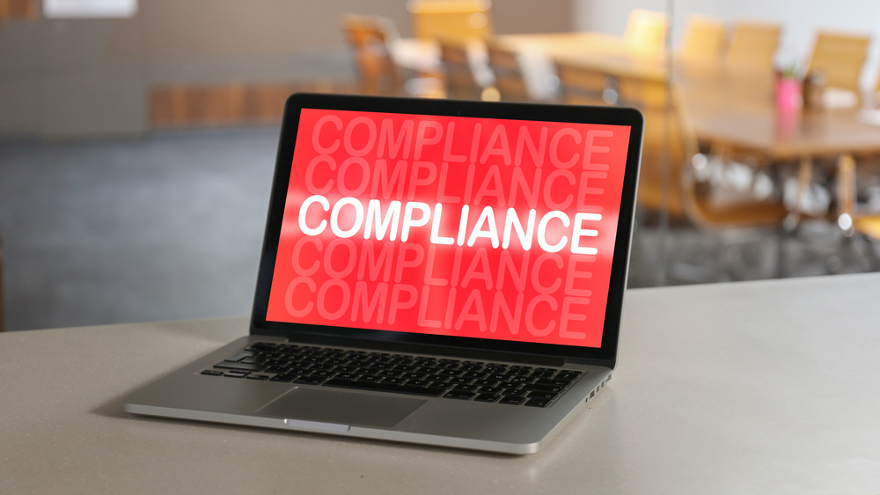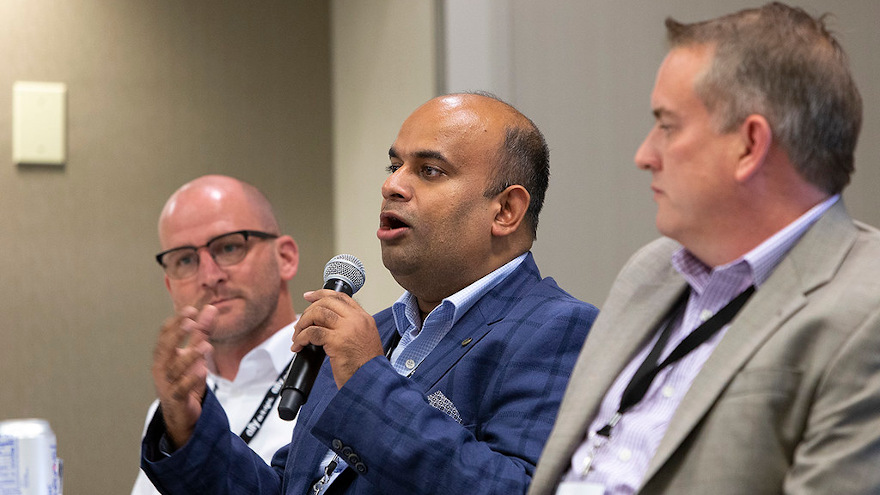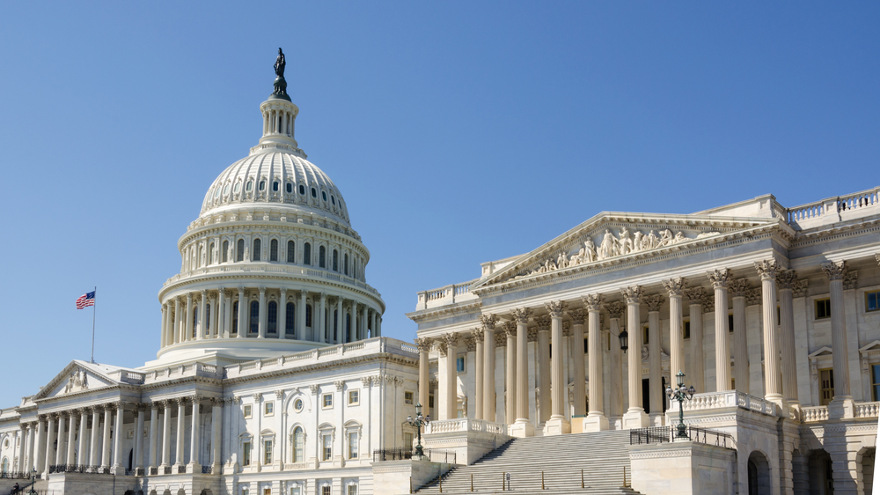PossibleNOW made a pair of moves that could help collections departments be more successful with the call efforts.
The provider of direct marketing compliance, enterprise consent and preference management solutions, announced a partnership with Numeracle, a developer within call blocking and labeling visibility in the calling ecosystem. The partnership is designed to extend actionable measures to improve the accurate presentation of vetted and verified business calls.
Furthermore, PossibleNOW also announced that it is offering 60-day access to its RegInfoHub product, giving personnel the ability to review the latest regulatory updates and news that affects their organization during the current COVID-19 pandemic.
As one of the solution providers with a defined process to vet and verify the trust associated with an enterprise caller or call center solutions provider, Numeracle can provide a single path to proactively identify legitimate entities and prevent the improper blocking of legal, wanted calls across multiple carriers and service providers.
By establishing trust in the entity behind the call as well as any contact center partners facilitating compliant call delivery, Numeracle’s solution can prevent the improper classification and blocking of calls today but prepares trusted callers for the next wave of call authentication through STIR/SHAKEN.
“The issue is far more complex than monitoring ‘suspected spam’ or ‘scam’ labels at the individual phone number level or employing a never-ending cycle of phone number rotation with diminishing returns,” Numeracle founder and chief executive officer Rebekah Johnson said in a news release.
“The remediation of phone number reputation begins by certifying trust in an organization’s call compliance and committing to a focus on best dialing practices. Organizations already taking advantage of PossibleNOW’s expertise in calling compliance are that much more ahead of the curve,” Johnson continued.
PossibleNOW emphasized that it has been focused on helping companies build trust with their customers through compliant and relevant communications, stressing the partnership with Numeracle will help further this goal.
“Improving a business’ contact rates, brand reputation, and customer engagement has become infinitely more complex due to the forward momentum of robocall blocking and labeling initiatives driven by the FCC, FTC, service providers and consumer groups,” PossibleNOW CEO Scott Frey said.
“In today’s uncertain economic environment, we know it’s more important than ever for trusted organizations to be able to maintain that positive interaction with their customers, patients, and members,” Frey continued. “We’re pleased to partner with Numeracle to ensure compliant, legal organizations may continue to leverage their communications channel of choice with as few interruptions as possible.”
PossibleNOW and Numeracle plan to host a joint webinar about call blocking and labeling on May 20 at 2 p.m. ET to discuss ways to improve contact rates in the new era of STIR/SHAKEN. Registration for the webinar can be completed on this website.
Accessibility to regulatory guide
As mentioned previously, PossibleNOW also announced that it is offering 60-day access to its RegInfoHub product.
Considering the current hardship that the coronavirus has placed on businesses, PossibleNOW acknowledged many organizations are considering how best to engage customers and prospects while maintaining compliance with regulations.
RegInfoHub is geared to provide access to current regulatory information and compliance guidance for phone, text, email, fax, and pre-recorded message communications. It allows businesses to easily create customized views based on topic and jurisdiction, so they can spend more time on marketing and customer service and less time on worrying about compliance.
RegInfoHub features include:
• Access to the latest regulatory updates, news and enforcement actions to keep you informed
• Interpretive text is provided by our legal team to enhance your regulatory understanding
• Chart Builder allows content to be customized by location and topic
• Improved functionality provides more ways to find, organize and use information
• Informational maps provide a summary view of specific regulatory information by location
• Complex topics are simplified by rendering them in a diagram format
• Intuitive user interface makes it easy to use the application
• Latest technology and enhanced security features for peace of mind
“Staying current with regulations is about more than just remaining compliant with new rules and enforceable legislation,”PossibleNOW marketing director Eric Tejeda said. “RegInfoHub is a critical component in helping companies to build trust and long-lasting relationships with their customers in unprecedented times.”
To receive free access to the site, go to info.possiblenow.com/reginfohub-trial.
Last week, the Consumer Financial Protection Bureau shared their latest action involving collections and time-barred debt disclosures.
The bureau issued a supplemental notice of proposed rulemaking (supplemental NPRM) regarding the collection of time-barred debt. The bureau proposes to prohibit collectors from using non-litigation means such as calls to collect on time-barred debt unless collectors disclose to consumers during the initial contact and on any required validation notice that the debt is time-barred.
Consumer research conducted by the bureau found that a time-barred debt disclosure “helps consumers understand that they cannot be sued if they do not pay.”
Officials added, “That can help consumers make better-informed decisions whether to pay the debt or not.”
Last May, the bureau published a proposal to implement the Fair Debt Collection Practices Act (FDCPA). The May proposal would provide consumers with what the regulator called “clear protections against harassment by debt collectors and straightforward options to address or dispute debts.” The CFPB went on to explain its proposal also would:
— Set “clear, bright-line” limits on the number of calls debt collectors may place to reach consumers on a weekly basis
— Clarify how collectors may communicate lawfully using newer technologies, such as voicemails, emails and text messages, that have developed since the FDCPA’s passage in 1977
— Require collectors to provide additional information to consumers to help them identify debts and respond to collection attempts
The bureau also mentioned its proposal from last May suggested to prohibit debt collectors from “suing or threatening to sue on debts they know or should know are time-barred.” The bureau said it included the “know or should know” standard in its proposal recognizing the concern that, in some instances, debt collectors may be genuinely uncertain whether the statute of limitations has expired even after undertaking a reasonable investigation.
The bureau said it received more than 14,000 public comments on the May proposal. A large number of comments addressed time-barred debt, including the proposed “know or should know” standard.
The CFPB acknowledged that the regulator is analyzing those comments as part of the process of taking final action on the May proposal.
Officials added that its latest supplemental NPRM proposes model language and forms that debt collectors could use to comply with the proposed disclosure requirements.
“As with the May (proposal), the supplemental NPRM also proposes to require disclosures only if a debt collector knows or should know that the debt is time-barred to address debt collector liability if there was too much uncertainty as to whether a debt was time-barred,” officials said.
“The public is invited to submit written comments on the proposed rule, including on the proposed knowledge standard,” they continued. “The bureau will carefully consider all comments received before a final regulation is issued.
The supplemental NPRM is available here.
Perhaps signaling locations where your collections department needs to tailor its focus, Experian pinpointed the top 10 states with the highest rates of 30-day delinquency after the third quarter.
According to Experian’s Q3 2019 State of the Automotive Finance Market report, analysts found the overall 30-day delinquency rate remained nearly flat year-over-year, coming in at 2.25%, just 1 basis point lower than the close of the same quarter a year earlier.
As expected, the 30-day delinquency rate was highest for finance companies, which Experian classifies as providers that do not carry commercial deposits and oftentimes book the most subprime paper. The 30-day delinquency rate for finance companies in Q3 was 4.69%, up from 4.57% a year earlier.
While Experian noticed captives had a 30-day delinquency rate in Q3 near the overall reading (2.58%), analysts indicated the rates for banks and credit unions each settled below the overall mark, coming in at 1.76% and 1.03%, respectively.
Looking at the data by location, here is Experian’s rundown of the top 10 states with the highest rates of 30-day delinquency:
1. Mississippi: 4.03%
2. Maryland: 3.89%
3. Louisiana: 3.36%
4. Georgia: 2.96%
5. South Carolina: 2.84%
6. Alabama: 2.74%
7. North Carolina: 2.68%
8. Delaware: 2.67%
9. Texas: 2.66%
10. Arkansas: 2.57%
Collections certainly can be complicated for finance companies, but Dasceq founder and chief executive officer Abhishek Goel explained how leveraging artificial intelligence does not necessarily have to make the task even more complex.
Goel joined Nick for this discussion after speaking during the Automotive Intelligence Summit this summer in Raleigh, N.C.
The full discussion can be found below.
Download and subscribe to the Auto Remarketing Podcast on iTunes or on Google Play.
You can also listen to the latest episode in the window below.
Catch the latest episodes on the Auto Remarketing Podcast homepage and on our Soundcloud page.
If a representative from your collections department is trying to find the person who is behind on their vehicle retail installment sales contract, a reasonable chance exists that other organizations are seeking the whereabouts of that individual, too, because of a debt issue.
The newest report from the Consumer Financial Protection Bureau showed that more than one-in-four consumers with a credit report have at least one debt in collection by third-party debt collectors.
The report, which covers 2004 to 2018, is drawn from the bureau’s consumer credit panel (CCP), a nationally representative sample of approximately 5 million de-identified credit records maintained by one of the three nationwide credit reporting companies. Officials said close to 900 third-party debt collectors furnished collection tradelines in the CCP.
The CFPB explained a tradeline is information about a consumer account that is sent, generally on a regular basis, to a credit reporting company. Tradelines contain data such as account balance, payment history, and status of the account.
The bureau reiterated its findings revealed that more than one-in-four consumers (28%) with a credit report in the CCP in 2018 had at least one third-party collections tradeline on their file.
The study also found that more than three-out-of-four third-party collections tradelines are for non-financial debt. More than half (58%) of these tradelines are for medical debt and another 20% for telecommunications or utilities debt.
Positive payment information is generally not furnished for medical or telecommunications debt, according to the CFPB.
The bureau pointed out that banks and other original creditors may collect their own debts or hire third-party debt collectors. In some instances, the original creditors may sell the debts to debt buyers. The buyers may try to collect on these debts, or hire other third-party debt collectors.
There are approximately 9,330 debt collectors and debt buyers in the United States, according to the CFPB.
The complete report can be downloaded here.
On Thursday, the Federal Communications Commission will consider a proposal the chairman calls bold action to help consumers block unwanted robocalls but is being questioned by 10 different industry associations, including the American Financial Services Association.
FCC chairman Ajit Pai has circulated a declaratory ruling that, if adopted, would allow phone companies to block unwanted calls to their customers by default. In addition, companies could allow consumers to block calls not on their own contact list. The accompanying draft and further notice of proposed rulemaking would propose a safe harbor for providers that implement network-wide blocking of calls that fail caller authentication under the SHAKEN/STIR framework once it is implemented.
“Allowing call blocking by default could be a big benefit for consumers who are sick and tired of robocalls. By making it clear that such call blocking is allowed, the FCC will give voice service providers the legal certainty they need to block unwanted calls from the outset so that consumers never have to get them,” Pai said in a news release.
“And, if this decision is adopted, I strongly encourage carriers to begin providing these services by default — for free — to their current and future customers. I hope my colleagues will join me in supporting this latest attack on unwanted robocalls and spoofing.”
Ahead of Thursday’s meeting, AFSA along with other associations delivered a letter to the FCC questioning the regulator’s action. The other association’s signing the letter included:
— American Bankers Association
— ACA International
— American Association of Healthcare Administrative Management
— Consumer Bankers Association
— Credit Union National Association
— Independent Community Bankers of America
— Mortgage Bankers Association
— National Association of Federally Insured Credit Unions
— National Retail Federation
“We the undersigned represent health care provider, pharmacies, grocers, retailers, banks, credit unions and other financial services providers. We fully support the commission’s goal to eliminate illegal automated calls. However, we are deeply concerned that the draft Declaratory Ruling released on May 16, 2019, if adopted as drafted, would result in the erroneous blocking of lawful calls — including urgent calls affecting consumer health, safety and financial well-being,” the groups said.
The associations stated public safety alerts, fraud alerts, data security breach notifications, product recall notices, healthcare and prescription reminders, and power outage updates all could be inadvertently blocked under the draft Declaratory Order, among other time-sensitive calls.
“Therefore, we urge the Commission to seek public comment on the draft Declaratory Ruling to avoid such unintended consequences,” they said.
The groups made another point, noting actions federal lawmakers took about this matter nearly 30 years ago.
“The blocking of such beneficial calls would harm consumers and be contrary to the public interest,” the groups said. “It also would frustrate the purpose of requirements from other federal agencies and would be inconsistent with Congress’ longstanding intent that the commission facilitate efforts to block only illegal calls and not lawful calls from legitimate business.
The groups added, “When Congress passed the Telephone Consumer Protection Act in 1991, Congress stated that it did not intend for the law to ‘be a barrier to the normal, expected or desired communications between businesses and their customers.’”
Meanwhile, Pai said many voice providers have held off developing and deploying call blocking tools by default because of uncertainty about whether these tools are legal under the FCC’s rules. The regulator continued that allowing default call blocking by voice providers could significantly increase development and consumer adoption of such tools.
“This blocking could be based on analytics and consumer ‘white lists,’” the FCC said. “Similar analytics are currently used by third-party developers in call blocking apps. Consumer ‘white lists’ could be based on the customer’s own contact list, updated automatically as consumers add and remove contacts from their smartphones.
Pai also proposed seeking public comment on how caller ID authentication standards, known as SHAKEN/STIR, can inform call blocking. He has demanded that carriers adopt these standards to combat malicious spoofing.
The FCC contends this system of signing calls as legitimate as they pass through the phone networks may well be useful for call blocking tools. With the expectation that such standards will be available later this year, Pai is proposing in a Further Notice of Proposed Rulemaking to create a safe harbor for calls that are blocked because they are not authenticated under the SHAKEN/STIR framework.
The Consumer Financial Protection Bureau is setting its regulatory target next on debt collection in light of technology advances such as text messaging and more.
On Tuesday, the bureau issued a notice of proposed rulemaking (NPRM) to implement the Fair Debt Collection Practices Act (FDCPA). CFPB officials said the proposal would provide consumers with “clear protections against harassment” by debt collectors and “straightforward options” to address or dispute debts.
Among other things, the CFPB explained the NPRM would set “clear, bright-line” limits on the number of calls debt collectors may place to reach consumers on a weekly basis as well as clarify how collectors may communicate lawfully using newer technologies such as voicemails, emails and text messages that have developed since the FDCPA’s passage in 1977.
The bureau also noted that its initiative would require collectors to provide additional information to consumers to help them identify debts and respond to collection attempts.
“The bureau is taking the next step in the rulemaking process to ensure we have clear rules of the road where consumers know their rights and debt collectors know their limitations,” CFPB director Kathleen Kraninger said.
“As the CFPB moves to modernize the legal regime for debt collection, we are keenly interested in hearing all views so that we can develop a final rule that takes into account the feedback received.”
Prior to the 2010 Dodd-Frank Wall Street Reform and Consumer Protection Act (Dodd-Frank Act), the CFPB explained Congress had not delegated to any agency the authority to issue substantive rules to interpret the FDCPA. The Dodd-Frank Act delegated that authority to the bureau.
Officials reiterated that their proposal would:
— Establish a clear, bright-line rule limiting call attempts and telephone conversations: The proposed rule generally would limit debt collectors to no more than seven attempts by telephone per week to reach a consumer about a specific debt. Once a telephone conversation between the debt collector and consumer takes place, the debt collector must wait at least a week before calling the consumer again.
— Clarify consumer protection requirements for certain consumer-facing debt collection disclosures: The proposed rule would require debt collectors to send consumers a disclosure with certain information about the debt and related consumer protections. This information would include, for example, an itemization of the debt and plain-language information about how a consumer may respond to a collection attempt, including by disputing the debt. The proposal would require the disclosure to include a “tear-off” that consumers could send back to the debt collector to respond to the collection attempt.
— Clarify how debt collectors can communicate with consumers: The proposed rule would clarify how debt collectors may lawfully use newer communication technologies, such as voicemails, emails and text messages, to communicate with consumers and would protect consumers who do not wish to receive such communications by, among other things, allowing them to unsubscribe to future communications through these methods. The proposed rule would also clarify how collectors may provide required disclosures electronically. In addition, if consumers want to limit ways debt collectors contact them, for example at a specific telephone number, while they are at work, or during certain hours, the rule clarifies how consumers may easily do so.
— Prohibit suits and threats of suit on time-barred debts and require communication before credit reporting: The proposed rule would prohibit a debt collector from suing or threatening to sue a consumer to collect a debt if the debt collector knows or should know that the statute of limitations has expired. The proposed rule also would prohibit a debt collector from furnishing information about a debt to a consumer reporting agency unless the debt collector has communicated about the debt to the consumer, such as by sending the consumer a letter.
The proposed rule can be found online here.
Officials said the public is invited to submit written comments on the proposed rule. The bureau said it will carefully consider comments received before a final regulation is issued.
ACA International questioned a proposal to regulate telephone communications from the U.S. House Energy and Commerce Committee chairman based on the assertion it could do more harm than good.
The organization that brings together third-party collection agencies, law firms, asset buying companies, creditors and vendor affiliates explained the potential House legislation would sweep illegal robocalls and legitimate non-telemarketing business calls into one category.
The Stopping Bad Robocalls Act (HR 946) was reintroduced back in February by Rep. Frank Pallone Jr., a Democrat from New Jersey.
According to a news release from the lawmaker, Pallone’s bill would direct the Federal Communications Commission to enact “strong” consumer protections for authorized calls and empower the FCC with strong enforcement tools to reign in robocallers.
The committee chairman said the legislation would also ensure that consumers have the ability to stop calls they’d previously authorized and require incoming calls to have authentic caller identification information before they are delivered to customers.
“Americans are fed up with robocalls. It is incredibly annoying to repeatedly get unwanted calls from people you don’t know and don’t want to talk to,” Pallone said. “Despite previous efforts like the Do Not Call Registry, robocalls are still on the rise. The Stopping Bad Robocalls Act will equip consumer protection agencies with innovative, new tools designed to stop the abusive practices by robocallers and better restrict unauthorized robocalls.”
ACA International insisted the measure would harm consumers by stymieing the free flow of information between thousands of legitimate businesses and consumers, emphasizing concerns that Pallone’s legislation presents an overly broad characterization of what is considered a robocall including a problematic expanded definition of what is considered an autodialer.
“If the Stopping Bad Robocalls Act was appropriately tailored to focus on bad actors that are making abusive and illegal robocalls, we would be in staunch support of such efforts,” ACA International chief executive officer Mark Neeb said in a news release.
“ACA members strongly agree that consumers deserve to be treated fairly and respectfully,” Neeb said. “However, the Stopping Bad Robocalls Act is not tailored to that goal and it instead does more harm than good by creating additional confusion, in an already confusing marketplace for determining how to comply with the severely outdated Telephone Consumer Protection Act (TCPA) of 1991.”
The latest online information available from the House’s official website indicated HR 946 remains within the House Energy and Commerce Committee.
“When Congress enacted the TCPA, it was for the purpose of limiting abusive telemarketing calls, yet Rep. Pallone’s legislation would mark an even further departure from that original laudable goal of stopping sales calls that consumers have not consented to receive, while doing nothing to deter illegal robocallers who have no interest in following the law,” Neeb said.
“Consumers often need the communications that legitimate businesses provide them and creating new onerous requirements for communicating with them is harmful,” he said.
The Stopping Bad Robocalls Act includes these potential actions:
— Amending the Telephone Consumer Protection Act (TCPA) to ensure that the FCC has the authority and the tools to take strong, quick action when they track down robocallers
— Allowing consumers to revoke consent they had previously given to receive calls at any time and in any reasonable manner
— Codifying a reassigned number database to put robocallers on notice when a telephone number they may have previously been authorized to call has been given to a new customer who has not authorized their call
— Limiting the number of robocalls exempted from the TCPA under the FCC’s rules
— Requiring calls to have verified caller identification information associated with a call before the call can be put through
— Extending the statute of limitations from one year to four years for callers violating robocall prohibitions
Pallone said an estimated 26.3 billion unwanted calls were placed in the U.S. last year, representing a 46-percent increase in unwanted calls over the previous year. What the lawmaker called a “staggering number of unwanted calls” are returning huge profit margins for robocallers, according to the House member, with every dollar spent by robocallers returning as much as $20 profit — a 2,000 percent profit margin.
Though Pallone acknowledged some robocalls are initiated by legitimate companies, the lawmaker added robocalls are also used by scammers to steal from consumers, with more than 22 million Americans losing a total of $9.5 billion in robocall scams in 2016 alone, according to his office.
Pallone’s proposal also was applauded by various consumer groups.
“The Stopping Bad Robocalls Act will apply essential and meaningful consumer protections from unwanted robocalls if the FCC should fail to rein in robocalls from telemarketers and debt collectors, student loan servicers and others,” said Margot Saunders, senior counsel at the National Consumer Law Center.
Consumer Reports policy analyst Maureen Mahoney added, “The robocalls problem is out of control and, without action from Congress, will only get worse. This legislation would tackle the growing problem of ‘spoofed’ calls that trick consumers into answering, by ensuring phone companies implement technology to stop these unwanted calls before they reach the consumer at no additional cost.
“Consumer Reports applauds Congressman Pallone for his leadership in addressing this growing problem,” Mahoney said.
S&P Global Ratings took its turn on Tuesday to add more context to the headline-creating and social-media stirring auto-finance data released by the Federal Reserve Bank of New York. Credit analyst Amy Martin led the charge looking closely at subprime auto loan asset-backed security (ABS) market.
Martin acknowledged the New York Fed highlighted Equifax data that showed delinquencies were on the rise with 90-day delinquencies reaching 4.47 percent for the fourth quarter of 2018 and marking the highest level since the first quarter of 2012.
“Our outlook for subprime auto loan ABS is more sanguine than the delinquency increase may seem to imply,” Martin said in a report titled, “The Severity of Subprime Auto Loan Delinquencies Is in the Eye of the Beholder.”
“For one, our rating approach is very issuer-centric and generally focuses more on losses than delinquencies — and losses have risen at a much slower rate. To the extent we’ve observed deterioration in an issuer’s performance, credit enhancement (the cushion available to cover loan losses) is generally sized to take that into account,” continued Martin, a member of the initial collection of honorees for Women in Auto Finance showcased during Used Car Week 2018.
S&P Global Ratings shared the report with SubPrime Auto Finance News. The report detailed four causes higher delinquencies in the data analysts track, including:
— Growth in subprime originations during an intensely competitive period
— A composition shift to include more deep subprime financing
— Softer/gentler collection strategies
— Later repossessions and charge-offs by some finance companies
Analysts first delved into the origination growth happening in subprime.
“As the economic recovery was getting underway around 2010, existing lenders, most of which had tightened their credit standards during the recession, started to ease their lending parameters and grow originations. Also, many new players emerged, some funded with private equity,” S&P Global Ratings said in the report.
“As competition heated up, the discounts at which finance companies purchased auto loans from dealers started to evaporate, causing profit margins to thin. Some lenders responded by building scale, with their greater lending levels accompanied by weaker credit quality and higher delinquencies and losses,” the firm continued.
Next, analysts discussed the composition shift, pointing out that prior to the recession, there were few securitizers that catered to the deep subprime segment.
“That has since changed,” S&P Global Ratings said, reiterating that it defines deep subprime as those pools with cumulative net losses of 20 percent or more. The firm also noted that generally the contract holders in these pools have either no credit score or a FICO reading below 550.
S&P Global Ratings mentioned new securitizers in the deep subprime space include Santander through its DRIVE platform, American Credit Acceptance, Exeter Finance and J.D. Byrider (also known as CarNow Acceptance).
“With this growth in deep subprime lending, we believe there has been a shift where consumers with either no credit history or very derogatory ones are buying and financing their vehicles,” analysts said in the report. “When credit was scarce, many of these borrowers could purchase only a high-mileage used vehicle at either an independent used car dealership or a buy-here, pay-here lot.
“Given the plethora of subprime lenders today and the turndown programs between prime lenders and their subprime lending partners, some of these consumers can now buy new vehicles or low-mileage used vehicles at either new-vehicle franchise stores or large used-vehicle mega-dealership chains,” they continued.
Because deep subprime securitizations have grown to 38 percent of securitized subprime auto loans in 2018 from only about 11 percent in 2015, S&P Global Ratings explained that its monthly auto loan tracker data includes a modified index to normalize the composition.
The latest monthly update from S&P Global Ratings showed that subprime losses decreased to 9.58 percent in January from 10.15 percent in December and 9.98 percent in January of last year due to lower losses in Santander’s SDART and DRIVE transactions.
Analysts added January recoveries improved year-over-year, from 38.80 percent from 33.56 percent for subprime. S&P Global Ratings pointed out that last January’s subprime recovery rate was negatively affected by GM Financial’s servicing system upgrade.
And speaking of recoveries, that report titled, “The Severity of Subprime Auto Loan Delinquencies Is in the Eye of the Beholder,” continued by touching on more lenient collection policies used by some finance companies. S&P Global Ratings described them as “softer and gentler.”
In some cases, S&P Global Ratings acknowledged these changes are in response to increased regulatory oversight, which has shed light on alleged fair debt collection violations. These relaxed collection practices include calling the delinquent borrower fewer times, refraining from calling the borrower’s references and no longer calling the borrower’s place of employment upon his or her request.
“As a result, it sometimes takes longer to arrange a payment plan with the borrower or to locate the vehicle for possible repossession, thereby keeping the account in delinquency status longer,” analysts said in the report. “In other cases, greater tolerance for late payments is due to management supporting the practice that it’s better to keep a delinquent customer who is making payments (albeit late or only partial ones) than to repossess the obligor’s vehicle, which is likely to result in a higher severity of loss.
“Less aggressive collection practices have also contributed, in some cases, to higher extension rates,” they continued. “When granting extensions, however, most lenders do so in a manner that brings the delinquent obligor’s account current. If a delinquent obligor has, however, exhausted the lender’s maximum number of extensions, his/her account would likely be accounted for as delinquent.
“Further, there may be some situations in which an extension does not bring an account current,” they added.
With less intense collection practices, S&P Global Ratings is seeing later repossessions and charge-offs.
“In line with allowing customers more time to resume payments before repossessing vehicles, some lenders have lengthened the time that an account may be delinquent until it is charged off,” the firm said in its report.
“DriveTime did this at the end of 2011, and such action caused a significant rise in their 31-day delinquencies, to 17.9 percent at year-end 2012 from 11.20 percent a year earlier. That said, losses rose only marginally (to 14.0 percent from 13.2 percent),” S&P Global Ratings went on to say.
What do all of the trends and data points mean? Martin summed up the situation this way.
“Indeed, the weighted average expected cumulative net losses on the transactions we’ve rated have grown to approximately 20 percent in 2018 from 12.5 percent in
2011 and, at the same time, ‘AAA’ credit enhancement has increased to approximately 54 percent on a weighted average basis from 36 percent,” Martin said.
“As a result, our outlook for investment-grade subprime auto loan ABS ratings is in a better place than one might assume given the trend in delinquencies,” Martin went on to say while adding this report does not constitute a rating action.
A way some of the best recovery industry professionals can be recognized is now available and open for submissions.
Organizers of the 11th annual North American Repossessors Summit — held by the American Recovery Association (ARA) in conjunction with headline sponsor Harding Brooks Insurance — have opened its online award submissions for the 2019 NARS Industry Awards.
The online submissions will be accepted until April 1.
Honoring exemplary repossession professionals, this year’s award categories include Agent of the Year, Service Representative of the Year, Humanitarian of the Year and Agency Owner of the Year. Winners will be announced during the summit, which will take place at the Omni Mandalay Hotel in Irving, Texas on April 18 and 19.
“Every year, we welcome the opportunity to recognize the industry professionals who best demonstrate the values of NARS in their work,” ARA President Dave Kennedy said. “This year, we wanted to create more ways we could honor repossession professionals across multiple job titles who truly embody our 2019 theme, ‘Adapt, Conquer and Overcome.’”
The Agent of the Year Award distinguishes an agent who has demonstrated outstanding professionalism, understanding of lender needs and full compliance with industry standards, as well as protection of the consumer's rights and safety.
The Service Representative of the Year Award represents someone who has shown exemplary performance and has consistently excelled in their position. This person demonstrates integrity, creates a positive atmosphere in their workplace and displays a strong commitment to the mission and values of the professional collateral recovery industry.
Humanitarian of the Year submissions can be an industry professional of any position who contributes significantly to alleviating human suffering and improving the quality of life in their community. This person demonstrates leadership through outstanding volunteer accomplishments that bring honor to the collateral recovery profession.
Finally, the Agency Owner of the Year Award will go to an owner who has at least a three-year commitment of excellence within their company and the collateral recovery industry. They should also be able to document their commitment to professional education and compliance training as well as the use of innovation and creativity in enabling their company to prosper and extend its reach in the collateral recovery profession.
Nominations for the 2019 NARS Industry Awards can be submitted at www.reposummit.com/about-the-summit/about-nars-2019-awards/. Regular registration for NARS 2019 remains open through Friday to recovery agents and finance companies at www.reposummit.com.












